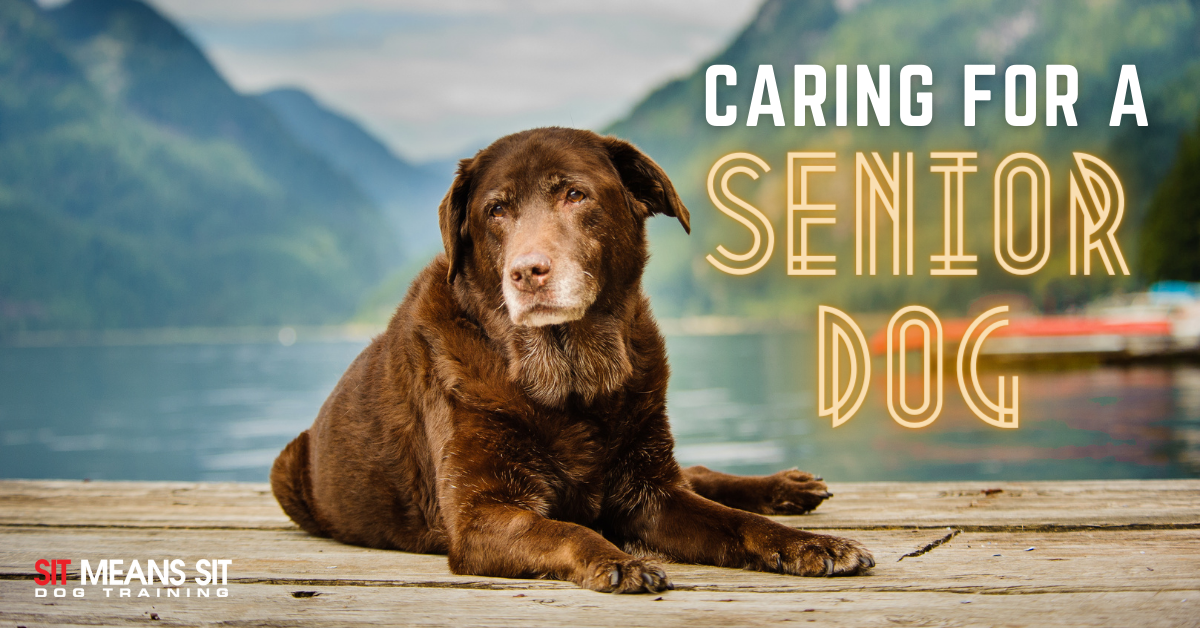
The Joys & Challenges of Caring for a Senior Dog
After a long life full of fun and love, it can be hard to watch your beloved furry friend fade into their senior years. However, while caring for an elderly dog can have some challenges, it can also come with a new set of joys.
Here are some of the joys and challenges of caring for a senior dog.
Joys
No More Surprises
You get to know your dog so well throughout their life that by the time they reach their senior years, there is almost nothing you don’t know about them. That means you can know what to expect in almost any situation.
And, if you are looking to adopt a senior dog, the shelter will usually have the most important information you need to know in order to determine if the dog will be a good fit in your home. For example, if you have kids, the shelter will most likely be able to tell you if this dog has a good temperament for a home with children.
They Have Been Trained
When raising puppies or young dogs, they require a lot of training in order to make them a seamless part of your family. However, by the top a dog reaches seniority, they have most likely already been well trained. This means you won’t have to deal with potty accidents and they will probably know at least the basic commands.
However, don’t believe the saying that old dogs can’t learn new tricks because it’s not true! It’s never too late to teach your senior dog a new command.
Less Destructive
Senior dogs are used to being around things that have been left out like toys or shoes and know not to destroy them. An older dog is much less likely to chew up something and can be trusted much more to only chew their own toys.
Much Calmer
Old dogs are typically much calmer than younger dogs and would be happy to lay around and go on nice strolls outside instead of partaking in vigorous activity every day. While some old dogs still have tons of energy, many seniors just want to nap and lounge all day long.
Challenges
Health Problems
As dog’s age, they will be more likely to need extra trips to the vet to treat various ailments that they may develop in their old age. This could include preventative care to keep them healthy for longer, medicines to treat conditions they may have, or different therapies to help them deal with whatever they may have going on.
Harder Time with Change
You may find that as your dog gets older, they have a harder time adapting to change than younger dogs. As dogs age, they have a decline in their ability to handle stress. This means changes in your dog’s daily routine can cause anxiety for them and big life changes like a move can be hard for them to deal with.
Need to Keep them Active
While you may find that your dog has decreased interest in activities as they age, it is important to encourage them to continue partaking in physical activity in order to keep them healthy. Something as small as a walk around the block can do wonderful things for keeping them mentally and physically healthy into their later years.
Changes to Your Home
As your dog ages, their joints can often develop arthritis and it can hurt them to move too much. This may mean that your dog has a hard time climbing stairs or jumping on and off of beds and furniture. Also, it can be hard for them to bend down to eat or drink out of a bowl on the ground. As your dog gets older, you may need to elevate their bowls a bit to make it easier for them.
Caring for a senior dog is not much different from caring for younger dogs in that all that really matters is the love and pets you shower them with as often as possible.
